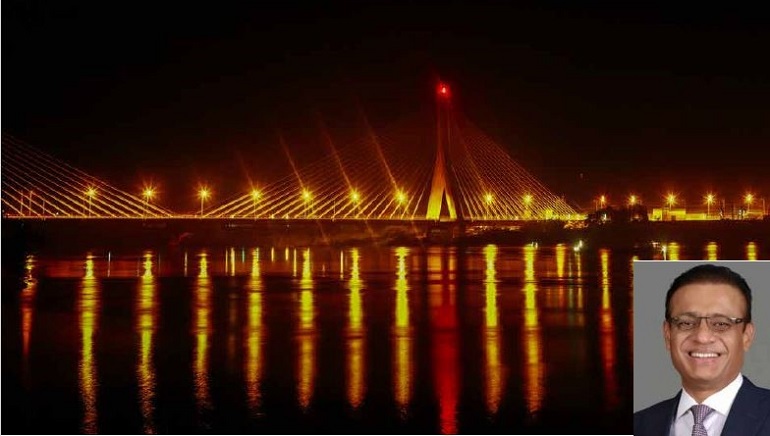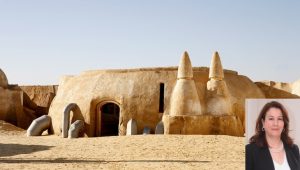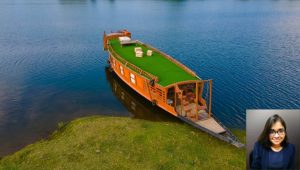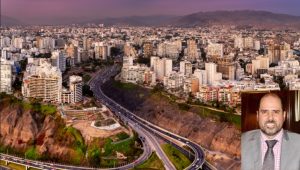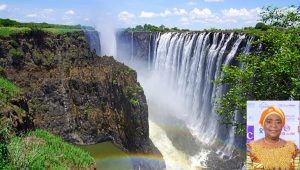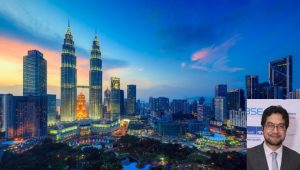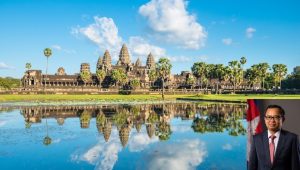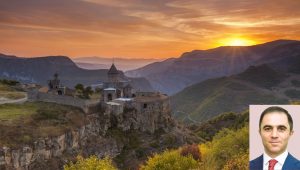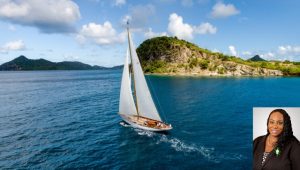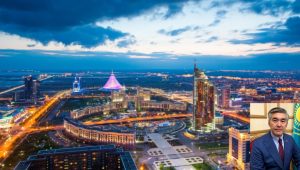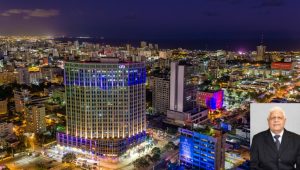Pearl of Africa
Creating a mosaic of distinct wildlife habitats & national parks; several UNESCO heritage sites; stunning landscape comprising magnificent lakes, rivers and forests; majestic mountains, plateaus & valleys; and captivating flora & fauna, Uganda may well be called a land of fairytales. Committed towards consistent growth of the people for God and the Country, it has successfully transformed itself from a troubled past to a present of stability and prosperity
By His Excellency Mr. Madhusudan Agrawal, Consul General for Republic of Uganda, Mumbai
Hailed as a pioneer in the liberalization of media in Africa, Uganda has also won praise for its vigorous campaign against HIV/AIDS, and holds a great potential of growth & development through untapped reserves of crude oil and natural gas.
Vision 2040 Uganda’s National Vision is ‘A transformed Ugandan society from a peasant to a modern and prosperous country within 30 years’. This involves changing from a predominantly low income to a competitive upper middle income country within 30 years. It is envisaged that the country will reach a per capita of USD 9,500 by 2040. The theme of the Vision is, ‘Accelerating Uganda’s Socioeconomic Transformation’. The Vision attributes, which are consistent with the principles of the constitution, are: (a) Independence and sovereignty; (b) Democracy and the rule of law; (c) Stability and peace; (d) Knowledgeable and skilled; (e) Able to exploit and use its resources gainfully and sustainably; (f) In a strong federated East Africa with an effective African Common Market and a strong African Defence Mechanism. To realize this Vision, Uganda will need to increase its GDP 30-folds in the next 30 years to attain the level of development observed in Upper Middle Income (UMI) countries. An analysis of these countries’ development paths and assessment of Uganda’s potential confirms that it is possible for the country to attain an upper middle income status within the next 30 years. The Vision is conceptualized around harnessing the opportunities, improving competitiveness and strengthening the fundamentals for transformation. The opportunities include: Agriculture, oil and gas, tourism, minerals, knowledge and ICT, abundant labour force, geographical location, water resources, industrialization and trade. On the other hand, the fundamentals include: physical infrastructure; ICT infrastructure; Science, Technology, Innovation and Engineering (STIE); and human resource. Its focus areas of development include Tourism, Agriculture, Industrialization, Oil and gas, Minerals, and Knowledge & ICT sector.
been robust over the past years and has successfully grown in terms of visitor arrivals, conference business, and investments in the tourist accommodation facilities. It is increasingly becoming a key source of livelihood and pride, helping to support families and local economies, and to build communities throughout the country. Uganda Vision 2040, the Second National Development Plan (NDP II) and the National Resistance Movement (NRM) Manifesto 2016– 2021, and sector development plans emphasize water-based tourism including water sports on navigable lakes and rivers, and redevelopment of the Source of the River Nile into a world-class tourist attraction site and turn it into a modern international and domestic tourism center as priorities. Uganda’s tourism largely rides on her natural endowments which give an edge over many of the popular tourist destinations in Africa. Uganda has an abundance of diverse tourist attractions ranging from abundant and diverse wildlife, culture to landscapes and water bodies. Uganda stands out in Africa because the country has more than 50% of the world’s remaining population of mountain gorillas, over 1,060 species of birds, constituting 11% of the global population of bird species, 345 species of mammals, 86 species of amphibians, 142 species of reptiles, 1,249 species of butterflies, over 600 species of fish and over 5,406 species of flora. Uganda is also home to the source of River Nile, the longest river in the world, Lake Victoria, the largest fresh water lake in Africa and Mt Rwenzori, the legendary mountains of the moon, the only mountain in the world with a snow cap on the equator. Lake Victoria is the largest freshwater lake in Africa, with a surface area of about 68,800 sq. km shared between Kenya (6%), Uganda (45%) and Tanzania (49%). The catchment area of the lake covers 180,959 sq. km.; 15.9% of this is constituted by Uganda. Biodiversity combined with the scenic beauty of the Lake Victoria, is one of the important contributors to increased tourist arrivals in the country and the investment in the hospitality. industry. Uganda’s rich culture is also something to explore, from the captivating dances to exquisite cuisines.
My Contribution as Consul General
I have been dedicatedly working on several fronts, and some of the notable achievements include the following: Post accreditation of Hon. Consul of Uganda, Indian Vice President Shri Hamid Ansari visited Uganda in Feb 2017. Ugandan Prime Minister Dr Ruhakana Rugunda visited Mumbai for inauguration of the Consulate office. Ugandan Vice President Edward Ssekandi visited India for first Uganda Investment Summit held on 8th March 2018. Letter of Intent signed worth USD 1.2 billion for investments in various sectors. Welcomed Indian Prime Minister Shri Narendra Modi to Uganda on 25th July 2018. Donation of Mobile Mammography Van – Hope Express – ‘Breast Cancer – Early detection saves life” to Uganda Cancer Institute (UCI) in 2018





